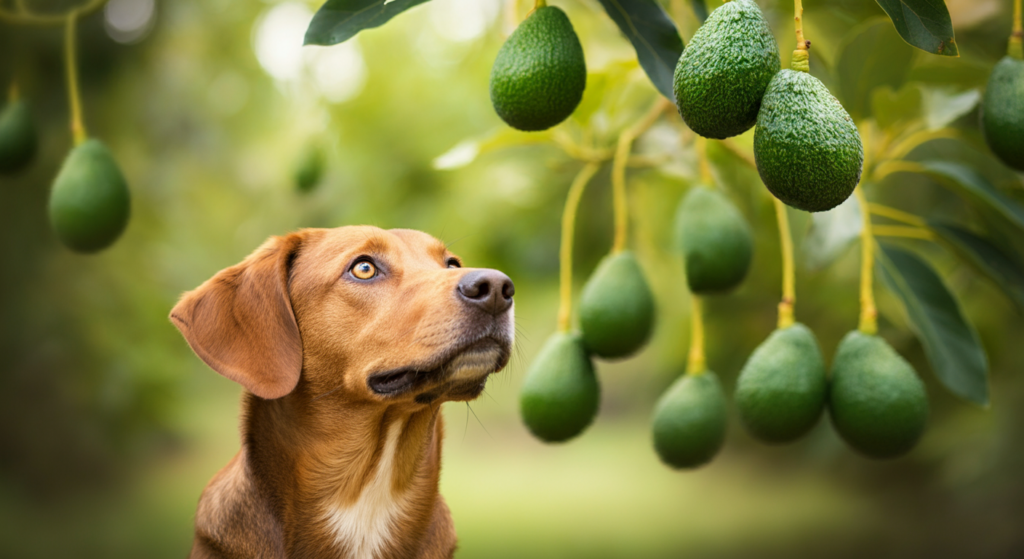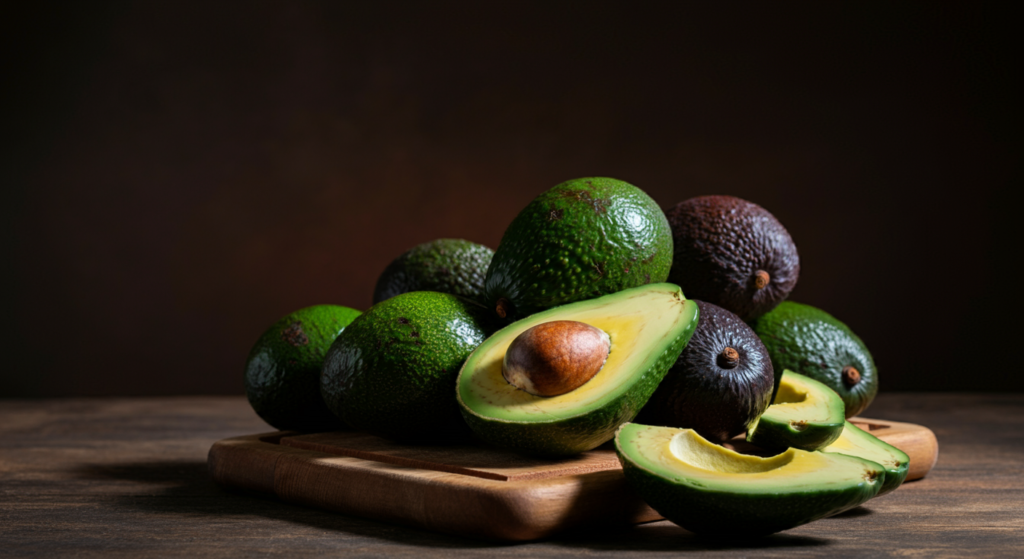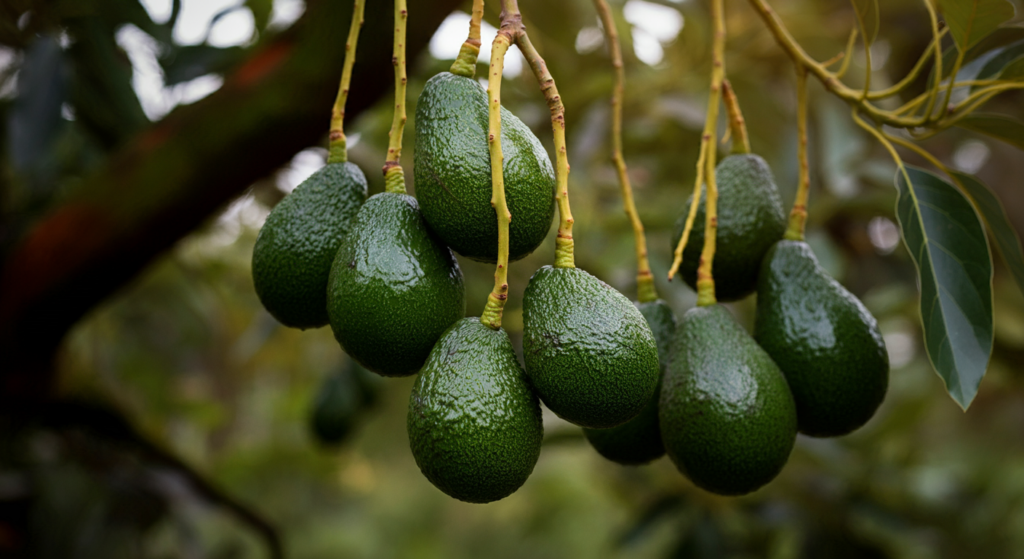Can dogs eat Avocado?
Can Dogs Eat Avocados? A Healthy Treat or a Risky Bite?
As dog owners, we’re always mindful of what’s safe for our furry friends to consume. With many human foods posing potential risks to dogs, it’s natural to question certain items in our diet. Avocados, celebrated for their creamy texture and numerous health benefits, often raise the question: “Can dogs eat avocado?” While they’re undeniably nutritious for humans, are they safe or suitable for our canine companions? Knowing the facts can help you make informed decisions about sharing this popular superfood with your pet.
Yes, dogs can eat avocado, but only under specific conditions. While the flesh of the avocado is safe for dogs in small amounts, other parts of the fruit—like the skin, pit, and leaves—can pose risks. Let’s dive deeper to ensure you’re making the best choice for your dog’s health.
Table of Contents
- Can Dogs Eat Avocados? A Healthy Treat or a Risky Bite?
- What Is an Avocado?
- Can Dogs Eat Avocado?
- What Are the Benefits of Avocado for Dogs?
- Are Avocados Bad for Dogs?
- Persin Content in Avocado
- Dangers of Persin for Dogs
- Are All Dogs Affected?
- Prevention and Safety
- Important Reminder
- How Much Avocado Can Dogs Eat?
- What Are the Dangers of Dogs Eating Avocado?
- Fun Facts About Dogs and Avocados
- Conclusion
- Frequently Asked Questions About Dogs and Avocados

What Is an Avocado?
Avocados are nutrient-rich fruits native to Central and South America. They’re prized for their creamy flesh, which is packed with healthy fats, vitamins, and minerals. However, avocados also contain a compound called persin, which can be toxic to certain animals. Dogs are relatively resistant to persin, but other risks, like the pit and high-fat content, still require consideration.
In human cuisine, avocados are often used in salads, spreads, and dips like guacamole. These preparations may include ingredients harmful to dogs, such as onions or garlic, making it essential to understand how avocados should be prepared before offering them to your pet.
Can Dogs Eat Avocado?
The simple answer is yes, dogs can eat avocado flesh in moderation. When served plain and in small amounts, avocados can provide some health benefits for dogs. However, it’s crucial to avoid the skin, pit, and any seasoned preparations.
What Are the Benefits of Avocado for Dogs?
When prepared correctly and offered sparingly, avocados can provide certain benefits to your dog. While not essential to their diet, avocados contain nutrients and compounds that may support your pet’s overall health. Here are some potential benefits of avocados for dogs:
1. Rich in Healthy Fats
Avocado flesh is an excellent source of monounsaturated fats, which can contribute to a shiny coat and healthy skin for your dog. These “good fats” can also support cardiovascular health when included in moderation.
2. Antioxidant Properties
Avocados are packed with antioxidants, such as vitamin E and carotenoids. These compounds help combat free radicals in your dog’s body, reducing oxidative stress and supporting a healthy immune system.
3. Provides Essential Vitamins and Minerals
Avocados contain small amounts of:
- Vitamin E: Supports skin health and immune function.
- Potassium: Aids in muscle and nerve function.
- Folate: Important for cellular function and tissue growth.
4. Supports Digestive Health
The dietary fibre in avocados can promote healthy digestion and regular bowel movements. However, the fibre content is relatively low, so the effects are mild.
5. May Promote Brain Health
The healthy fats and antioxidants in avocados may support brain health, particularly in aging dogs. These nutrients could help reduce inflammation and maintain cognitive function.
Are Avocados Bad for Dogs?
In moderation, avocado flesh is not bad for dogs. However, excessive consumption or exposure to other parts of the avocado can lead to health issues. Here are some important risks to consider:
1. Persin Content
While dogs are less sensitive to persin than some animals, consuming large quantities of avocado—especially the skin, leaves, or pit—can cause vomiting, diarrhoea, and other symptoms of gastrointestinal distress.
2. High Fat Content
Avocados are calorie-dense due to their fat content. Feeding your dog too much avocado can lead to:
- Weight Gain: Excess calories can contribute to obesity.
- Pancreatitis: High-fat foods can trigger this painful condition in some dogs.
3. Choking Hazard
The large pit inside an avocado poses a serious choking risk, especially for smaller dogs. Even if swallowed, the pit can cause intestinal blockages that may require surgical intervention.
4. Digestive Upset
Even plain avocado flesh can upset a dog’s stomach if consumed in large amounts. Symptoms include:
- Vomiting
- Diarrhoea
- Bloating or gas
5. Toxic Additives in Guacamole
Prepared avocado dishes like guacamole often contain onions, garlic, salt, or spices that are toxic to dogs. Avoid feeding your dog any avocado that has been seasoned or mixed with other ingredients.
Avocado contains a natural toxin called persin, which is found in various parts of the plant, including the leaves, bark, skin, seed, and, to a lesser extent, the fruit itself. While persin is harmless to humans in small quantities, it can be dangerous for certain animals, including dogs, depending on the amount consumed.

Persin Content in Avocado
- Highest concentrations: Found in avocado leaves, bark, skin, and the seed.
- Lower concentrations: Found in the flesh of the avocado (the edible part), making it generally safer than other parts of the plant.
Dangers of Persin for Dogs
While dogs are more resistant to persin toxicity compared to other animals (like birds, horses, and rabbits), large amounts of avocado can still pose risks, including:
- Gastrointestinal Upset: Vomiting, diarrhoea, or stomach pain can occur if a dog consumes too much avocado flesh or skin.
- Choking Hazard: The avocado seed is large and slippery, making it a potential choking hazard or cause of intestinal blockage if swallowed.
- High Fat Content: Even though persin toxicity is less common, avocado flesh is rich in fat. Consuming too much fat can lead to:
- Pancreatitis (inflammation of the pancreas).
- Weight gain or obesity in the long term.
- Other Symptoms:
- Lethargy
- Abdominal discomfort
- Allergic reactions (rare but possible)
Are All Dogs Affected?
The effects of persin vary based on the size of the dog, the amount of avocado consumed, and the specific part of the avocado ingested. While small amounts of avocado flesh are generally safe for most dogs, ingestion of the skin, seed, or leaves is far more dangerous.
Prevention and Safety
- Only feed your dog small amounts of plain avocado flesh, avoiding all other parts of the fruit.
- Monitor your dog for any adverse reactions after consumption.
- Keep avocados and avocado-containing products (like guacamole) out of reach of your pet.
- Consult a veterinarian immediately if your dog consumes large amounts of avocado or any potentially dangerous parts (seed, skin, leaves).
Important Reminder
If in doubt, avoid giving your dog avocado entirely, especially if they are prone to digestive issues or pancreatitis.
How Much Avocado Can Dogs Eat?
Portion control is key when feeding avocados to dogs. A small dog may tolerate only a teaspoon of avocado flesh, while larger breeds might handle a tablespoon or two. Introduce avocado gradually and monitor your dog for any adverse reactions.
Tip: Always consult your veterinarian before introducing new foods to your dog’s diet.
What Are the Dangers of Dogs Eating Avocado?
Here are the main dangers associated with dogs eating avocado:
1. Pit Obstruction
Swallowing an avocado pit can lead to intestinal blockages, a serious condition requiring immediate veterinary attention.
2. Toxic Parts of the Avocado
The skin, pit, and leaves contain higher levels of persin, which can be harmful if ingested.
3. Allergic Reactions
Though rare, some dogs may be allergic to avocados. Signs of an allergic reaction include:
- Itching or scratching
- Swelling
- Difficulty breathing
Fun Facts About Dogs and Avocados
- In regions where avocados grow naturally, wild animals often consume the fruit. However, they typically avoid the toxic parts.
- Some dogs love the creamy texture of avocados, while others may turn their nose up at it.
- Did you know avocados have been cultivated for over 5,000 years? While they’re not a dietary staple for dogs, they can be an occasional treat.
Conclusion
So, can dogs eat avocado? The answer is yes—with precautions. Always serve plain, ripe avocado flesh in moderation. Avoid the skin, pit, and any seasoned preparations to keep your dog safe. If your dog accidentally consumes other parts of the avocado or shows signs of distress, contact your veterinarian immediately.
Have you tried giving your dog avocado? Share your experience below!

Frequently Asked Questions About Dogs and Avocados
1. Is avocado safe for dogs?
Avocado flesh is generally safe for dogs in small quantities. However, the skin, seed, and leaves contain persin, a toxin that can be harmful to dogs in large amounts. Always consult your vet before introducing avocado to your dog’s diet.
2. What if my dog eats a little piece of avocado?
If your dog eats a small piece of avocado flesh, it’s unlikely to cause harm. Monitor for any signs of vomiting, diarrhoea, or discomfort. If they consumed the skin or seed, contact your vet immediately.
3. Can dogs eat avocado in the UK?
Yes, dogs in the UK can eat small amounts of avocado flesh just like elsewhere. The risks remain the same—avoid the seed, skin, and leaves, and limit the portion size due to the high-fat content.
4. How much avocado should I give my dog?
Only a small amount (a teaspoon for small dogs, a tablespoon for larger dogs) of plain avocado flesh should be given occasionally. Avoid overfeeding due to its fat content, which can lead to pancreatitis.
5. How much avocado will kill a dog?
The amount of avocado required to cause fatal toxicity varies by dog size, the part of the avocado consumed, and individual tolerance. While avocado flesh is unlikely to be fatal, ingesting large amounts of seeds, skin, or leaves may cause serious harm. Contact a vet immediately if any dangerous parts are consumed.
6. Can dogs eat avocado seeds?
No, dogs should never eat avocado seeds. They pose a choking hazard and can cause intestinal blockages. Additionally, seeds contain higher concentrations of persin, which may be toxic in large amounts.
7. Can dogs eat avocado skin?
No, avocado skin should not be given to dogs. It contains persin and is tough to digest, potentially leading to gastrointestinal upset or toxicity in large amounts.
8. Can avocado kill dogs?
Avocado flesh is highly unlikely to kill a dog when given in small amounts. However, the seed, skin, or leaves could pose serious risks if ingested in significant quantities. Immediate veterinary attention is necessary in such cases.
9. Can dogs eat avocado oil?
Yes, avocado oil is safe for dogs when used in moderation. It contains no persin and can be a healthy source of fats. However, avoid overuse due to its calorie density.
10. Can dogs eat avocado (as discussed on Reddit)?
The consensus among pet owners and experts on platforms like Reddit is that small amounts of avocado flesh are fine for dogs. However, care should be taken to avoid other parts of the avocado and to feed it sparingly.
11. What are the benefits of avocado for dogs?
Avocado flesh is rich in healthy fats, vitamins (like A, B6, and E), and antioxidants, which can support a dog’s skin and coat health. However, these benefits can be obtained from other dog-safe fruits and vegetables without the associated risks.
12. Can dogs eat avocado ice cream?
No, dogs should not eat avocado ice cream. Most ice creams contain sugar, dairy, or artificial sweeteners like xylitol, which are harmful to dogs. Additionally, processed foods are not suitable for their digestive systems.
